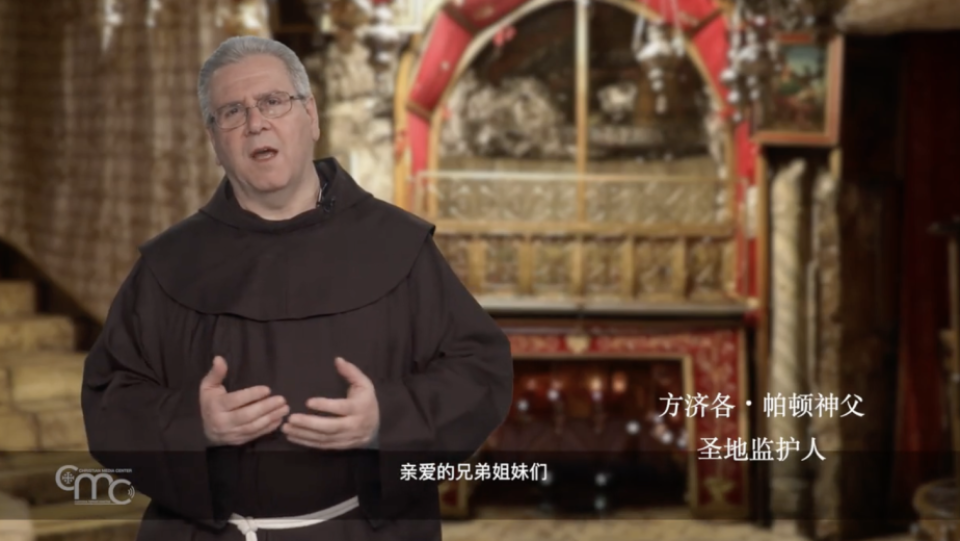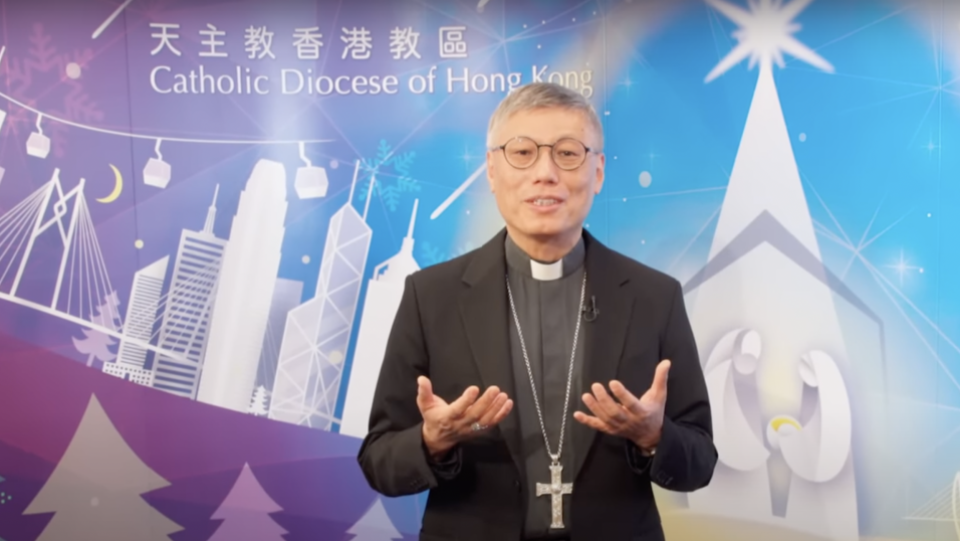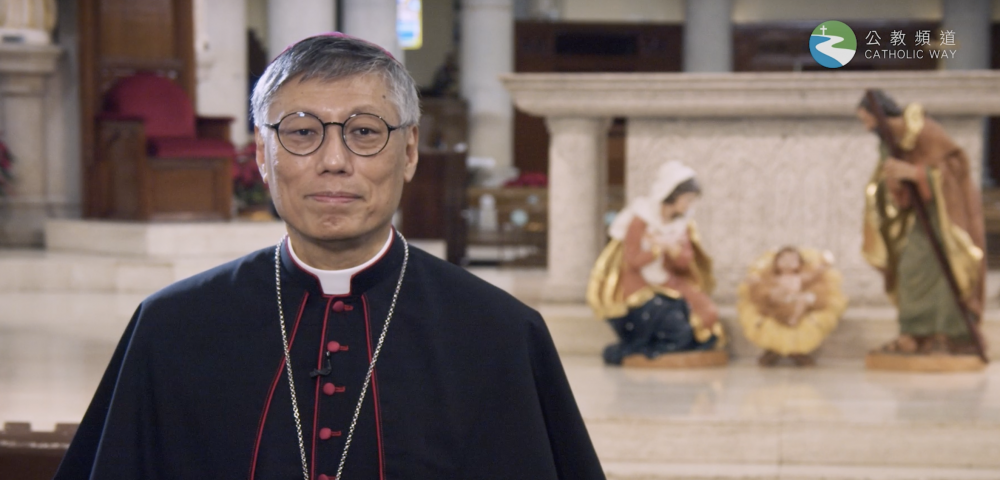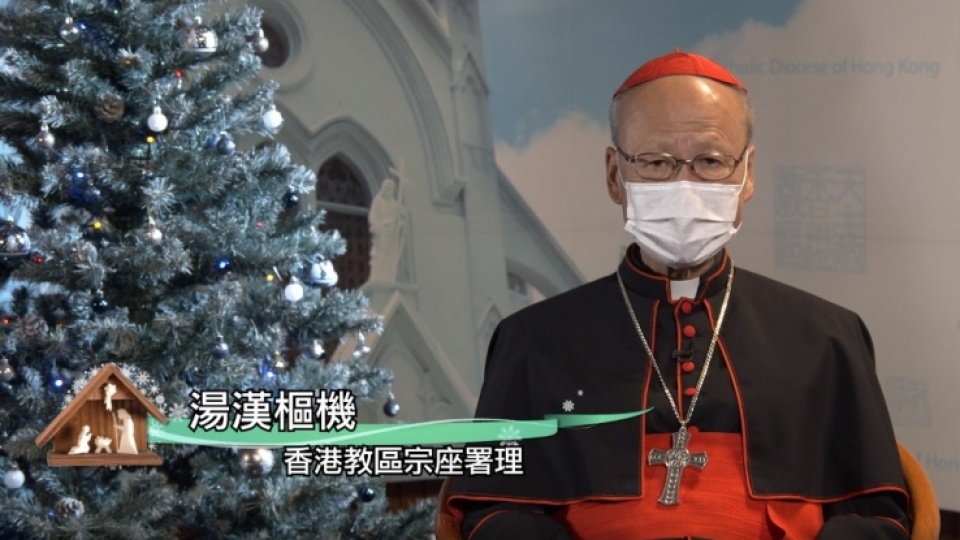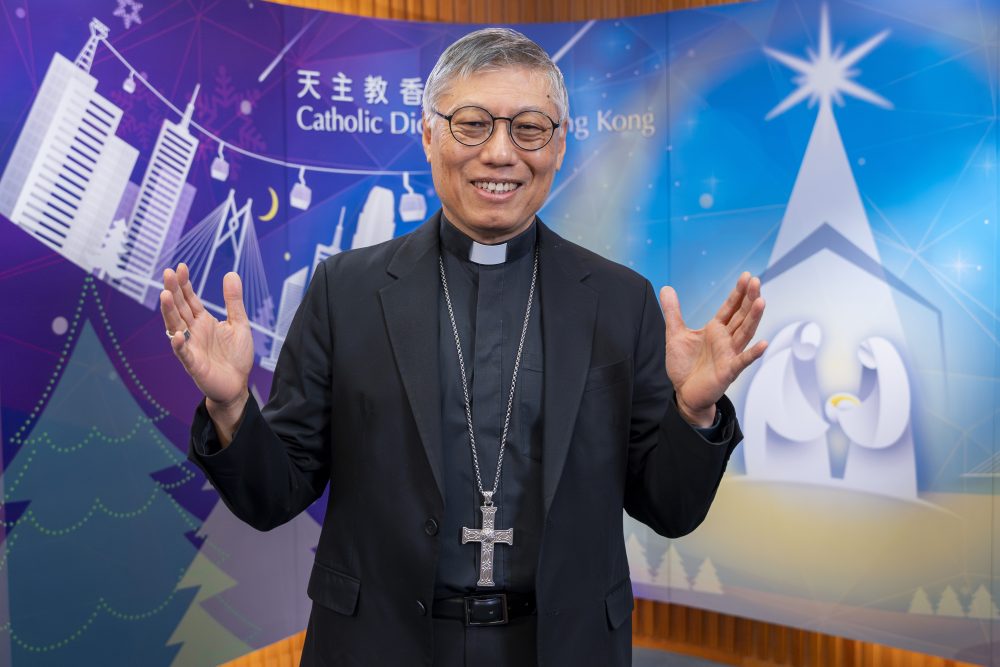
圖片:香港天主教社會傳播處
聖誕節和新年是希望、愛、和平與夢想的時刻 !
+
天主教會將慶祝 2025 禧年
「期待所希望的幸福,和我們偉大的天主及救主耶穌基督光榮的顯現。」 (弟鐸書 2:13)
在我們現今的世界,希望似乎比以往更難獲得。隨著全球和地方經濟的復 蘇慢於預期,世界多處地區的戰爭哀號更趨強烈,地緣政治日益緊張,達致功能失調的心理健康問題增多、特別在青少年和長者組別,令人沮喪的關係貧窮,具破壞力的零和競爭,以及自然生態的黯淡前景。
就是在這些令人沮喪和焦慮的現實當中,我們仍再次等待聖誕帶來的喜樂 和希望。明白聖誕節原意的人都知道,它不是世俗的商業慶節。聖誕是愛 的慶節,永遠愛著我們的天主派遣祂獨生子與我們一起走人世路,直接介 入我們人類的歷史之中。聖誕的救贖目標,是要向我們展示上主那無疆界的慈愛。
上主的愛為祂與人之間帶來了寬恕與修和。因此,那些經驗過而又接受這 愛的人們,可以帶著明確的希望去面對生活中的挑戰和失望。這不是隨意 的一種希望,而是在今生、以至今生以後,對上主堅懈不屈和永恆的愛的 希望。是的,天主的兒子,我們的厄瑪奴耳的到來,是要給世界這個保證、尤其是當希望看似漸趨渺茫的時候。
天主教會將慶祝 2025 禧年。事實上,禧年是每 25 年慶祝一次。這次禧年 的主題是「希望的朝聖者」,因為「望德不使人蒙羞」(羅馬書 5:5)。 我們要記得人人都只是過客;沒有人能夠永遠地活在這世上。讓我們感到 安慰的是我們相信自己正在通往另一生命,將會在永恆中與我們慈愛的創 造主、我們所愛的人、以及那些愛我們的人團聚。
聖誕節讓我們經驗到上主慈愛的應許。因此我們朝聖者可以懷著希望,以不同的步伐甚至不同的模式,與生命和愛的源頭一起邁步,走向永恆。
因此,透過我們的意識中的這種愛與希望,可以把愛帶到不同的團體裡 去。我們要強化這希望,它不會讓我們愛的人、跟我們合不來的人、以至 為我們是陌生的人感到失望,尤其是那些在不同的社會邊緣掙扎、感到無 用和被遺棄的人。
我們會想到那些在戰亂地方掙扎求存而承受著似是無盡折磨的人們、那些為尋求具尊嚴的未來的流離失所者和難民、那些期待新生活的在囚人士、那些因看不到穩定前景而不敢生兒育女的夫婦,那些看不到可信的理由讓他們勾劃出希望的未來的青年,那些孤獨和被遺棄的長者,那些在醫院內 感到寂寞的病人。
禧年有一個別具意義的傳統,就是寬免那些永遠無法償還、或未能完全償還的債務,讓借債人有機會開展新生。我們相信所有人都在分享共同家園 裡的眾多資源,這意味著我們需要學習公正和互相依存地生活,以提高整 體的生活質素,或最低限度要共存下去。這個「我們」必須包括構成共同 家園的其他生命。
當我們能幫助疲弱的一方健康壯大起來,讓我們一起擁有更美好的現在和充滿希望的未來時,這便符合我們以至後代的最佳利益。公義不是透過報 復、而是藉著同理心,讓有關各方能攜手共建新的現實所達致的。這是否 太過天真、不切實際呢?不,才不是,這為我們共同的未來是必須的。
我們要懷著希望去面對本地和全球的經濟、關係 —— 特別是那些受苦於 關係貧窮的人、政治穩定與和諧,以至生態環境的健康。為我們在香港這 個家生活的人來說,一定要鼎力支持香港。大家以慈愛相待,特別是對青 年、長者、移民和旅客,香港可望成為充滿希望、愛和生命的充滿活力之都!
最後,聖誕節和新年是希望、愛、和平與夢想的時刻!沒有希望和夢想, 就沒有更美好的未來。尤其是為我們的年青人來說,我們需要與他們同行,為他們具創意的希望和夢想加添力量。
祝大家和我們的共同家園有一個歡樂的聖誕和充滿希望的 2025 年。
+ 周守仁樞機
Christmas and the New Year are a time
for hope, love, peace, and dreams!
+
The Catholic Church to celebrate
the Ordinary Jubilee of the Year 2025!
“We await the blessed hope, the appearance of the glory of our great God and saviour Jesus Christ.” (Titus 2:13)
Hope seems harder to come by in our world today. With the slower-than expected recovery of global and local economies, there are growing war cries in different parts of the world, increasingly tense geopolitics, rising of dysfunctional mental health problems, particularly among the younger and elderly populations, depressing relational poverty, devastating zero-sum competitions, and a darkening outlook of the natural ecology.
Even within these depressive and anxiety-provoking realities, we await once again the promise of joy and hope of Christmas. Those who appreciate the original meaning of Christmas should know that it is not a secular commercial feast. It is a feast of love through the direct intervention of the ever-loving God into our human history. This was made possible by sending God’s only Son to journey with us. Its salvific objective is to show us the compassionate love of God that knows no bounds.
This love of God brings forgiveness and reconciliation between God and humanity. For those who have come to experience and accept this love can, therefore, face challenges and disappointments in life with definite
hope. Not just any hope, but a hope for the unyielding and eternal love of God, both in this life and the life after. Yes, the coming of the Son of God, our Emmanuel, is to give the world this assurance, especially when hope seems ever dimmer.
The Catholic Church is to celebrate the Ordinary Jubilee of the Year 2025. The Ordinary Jubilee, in fact, occurs once every 25 years. The theme of this Jubilee Year is “Pilgrims of Hope,” for “Hope does not disappoint” (Romans 5:5). We are reminded that everyone is only a sojourner; no one can live forever in this world. It is consoling when we believe that we are on our way to another life, reuniting with our loving Creator in eternity, our beloved ones, and those who loved us.
Christmas allows us to experience this loving promise of God. Because of that, we can have hope, as fellow pilgrims, to journey together towards eternity with the Source of Life and Love, though at different paces and even in different modes.
Therefore, with this love and hope in our consciousness, we can help bringing love to our communities. We need to reinforce this hope that does not disappoint those we love, those with whom we have di[iculties, and those who are strangers to us, especially those who are struggling in the social margins, feeling unwanted and abandoned.
We can think of those who are struggling in war zones with seemingly endless torment, displaced persons and refugees looking for a dignified future, prisoners waiting for a new life, married couples who cannot see a su[iciently stable future for childbearing, young people who fail to identify convincing reasons to envisage a hopeful future, the elderly who are lonely and abandoned, and those who are sick and lonely in hospitals.
The one meaningful tradition of a Jubilee Year is to forgive the debts of those who will never be able to repay or repay fully, so that they can have a chance to restart their lives anew. We believe all of us share many resources of our Common Home, which means we need to learn to live justly and inter-dependently in order to enhance the overall quality of life or our mutual survival at the least. This “we” must include other life forms constituting this Common Home.
It is in our best interest, and that of future generations, when we can help the weaker parties to become stronger so that together we can have a better present and a hope-filled future. Justice is better not sought through vengeance but through empathy so that all the parties concerned can co construct a new reality hand-in-hand. Is this not too naïve and unrealistic? No, it is not, but a must for our collective future.
We certainly need to have hope in the economy, both locally and globally, in relationships, especially for those su[ering from relational poverty, in political stability and harmony, and in the health of the ecology. For those of us living in Hong Kong, which we call our home, it definitely needs our utmost support. Together with lovingkindness to each other, especially towards young people, the elderly, migrants, and visitors, Hong Kong will shine as a vibrant city filled with hope, love, and life!
Finally, Christmas and the New Year are a time for hope, love, peace, and dreams! Without hope and dreams, there will be no better future. Especially for our young people, we need to walk alongside them and empower their creative hopes and dreams.
A joyous Christmas and a hope-filled 2025 to you all and our Common Home!
+ Cardinal Stephen Chow, S.J.
來源:香港天主教社會傳播處

